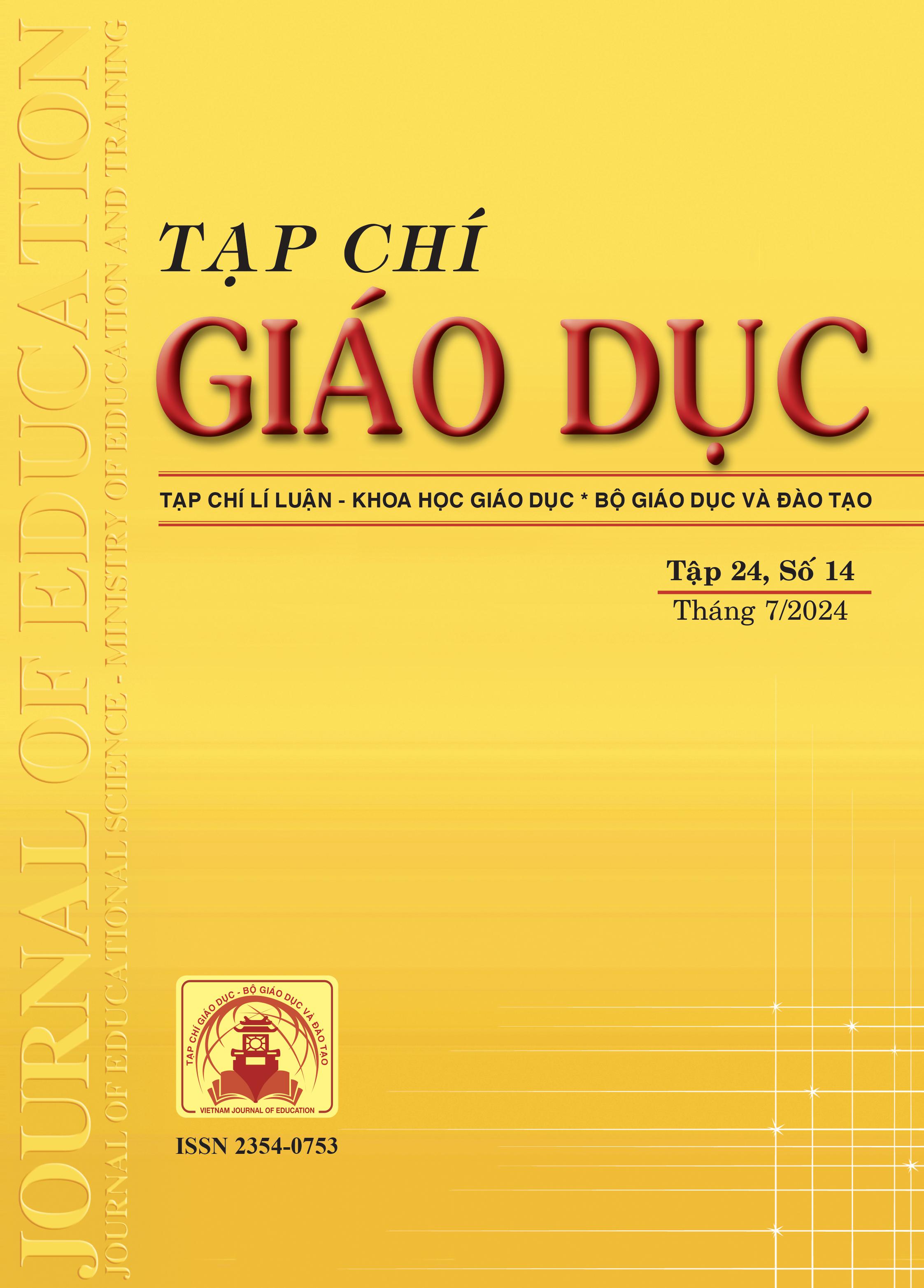Tác động của trí tuệ cảm xúc đến sự gắn kết và hài lòng công việc của nhân viên thông qua sự cân bằng công việc và cuộc sống: Một nghiên cứu tại thành phố Đà Nẵng
Tóm tắt
The terms “emotional intelligence” and “work-life balance” are becoming increasingly popular in human resource management because of their importance. The purpose of this study is to explore the mediating role of work-life balance in the relationship between emotional intelligence, job engagement, and employees' job satisfaction. The research data was collected through online questionnaires from 160 employees working in organizations and businesses in Da Nang city. The author uses SmartPLS 4.0 software with non-parametric Bootstrapping 5,000 iterations to test the measurement and structural models. The research results show that work-life balance mediates the relationship between emotional intelligence with job engagement and employees' job satisfaction. The study has important academic contributions and management implications by focusing on improving emotional intelligence and good work-life balance to enhance employees’ job engagement and job satisfaction.
Tài liệu tham khảo
Akhtar, R., Boustani, L., Tsivrikos, D., & Chamorro-Premuzic, T. (2015). The engageable personality: Personality and trait EI as predictors of work engagement. Personality and Individual Differences, 73, 44-49.
Đỗ Tất Thiên, Phạm Thái Tiểu Mi (2023). Một số vấn đề lí luận về sự gắn kết công việc. Tạp chí Khoa học, Trường Đại học Sư phạm Thành phố Hồ Chí Minh, 20(7), 1268-1279.
Jaharuddin, N. S., & Zainol, L. N. (2019). The impact of work-life balance on job engagement and turnover intention. The South East Asian Journal of Management, 13(1), 7.
Kinnary, N. R., Tanuwijaya, J., Pratama, S. K. I., Fatimah, T., & Mirici, I. H. (2023). The Influence of Emotional Intelligence on Employee Engagement and Job Satisfaction through Work-Life Balance. International Journal of Multidisciplinary Research and Analysis, 06(08), 3542-3552.
Lê Thị Trâm Oanh (2022). Một số vấn đề đặt ra về năng lực lãnh đạo, quản lí khu vực công trong xu hướng phát triển mới. Tạp chí Quản lí Nhà nước, 321, 45-49.
Mai Thị Mỹ Quyên, Tạ Thị Thanh, Lê Nguyễn Hậu (2022). Ảnh hưởng của giá trị cá nhân đến sự cân bằng giữa công việc và cuộc sống và sự viên mãn trong cuộc sống của nhân viên - Một nghiên cứu thực nghiệm ở Việt Nam. Tạp chí Nghiên cứu Kinh tế và Kinh doanh châu Á, 33(6), 58-71.
Muafi, M., & Marseno, W. A. (2021). The effects of work-life balance and emotional intelligence on organizational commitment mediated by work engagement. International Journal of Business Ecosystem & Strategy (2687-2293), 3(2), 01-15.
Mayer, J. D., Salovey, P., & Caruso, D. (2000). Models of Emotional Intelligence. In Handbook of Intelligence, Chapter 18, pp. 396-420. Published online by Cambridge University Press. https://doi.org/10.1017/CBO9780511807947.019
Nanda, M., & Randhawa, G. (2020). Emotional intelligence, work-life balance, and work-related well-being: A proposed mediation model. Colombo Business Journal, 11(2), 1-23.
Nurjanah, D., & Indawati, N. (2021). Effect of emotional intelligence on employee engagement and job satisfaction with work-life balance as intervening variables in the generation Z in Surabaya. International Journal of Economics, Management, Business, And Social Science (IJEMBIS), 1(3), 316-328.
Nguyễn Thế Anh, Vũ Thu Thủy, Nguyễn Thị Thanh Lịch (2022). Mô hình trí tuệ cảm xúc người lãnh đạo của Daniel Goleman. Tạp chí Quản lí Giáo dục, 4, 133-138.
Schaufeli, W. B., Salanova, M., González-Romá, V., & Bakker, A. B. (2002). The measurement of engagement and burnout: A two sample confirmatory factor analytic approach. Journal of Happiness Studies, 3, 71-92.
Slaski, M., & Cartwright, S. (2003). Emotional intelligence training and its implications for stress, health and performance. Stress and Health, 19(4), 233-239.
Smith, P. C. (1969). The measurement of satisfaction in work and retirement: A strategy for the study of attitudes. Rand McNally and Company.
Spector, P. E. (1997). Job satisfaction: Application, assessment, causes, and consequences. Sage Publications.
Trần Kim Dung (2005). Đo lường mức độ thỏa mãn đối với công việc trong điều kiện của Việt Nam. Tạp chí Phát triển Khoa học, 8(1), 85-91.
Wahda, A., & Nurqomar, I. F. (2021). Work-life balance policies and work-family conflict. Psychology and Education, 58(2), 9781-9789.
Tải xuống
Đã Xuất bản
Cách trích dẫn
Số
Chuyên mục
Giấy phép

Tác phẩm này được cấp phép theo Ghi nhận tác giả của Creative Commons Giấy phép quốc tế 4.0 .












